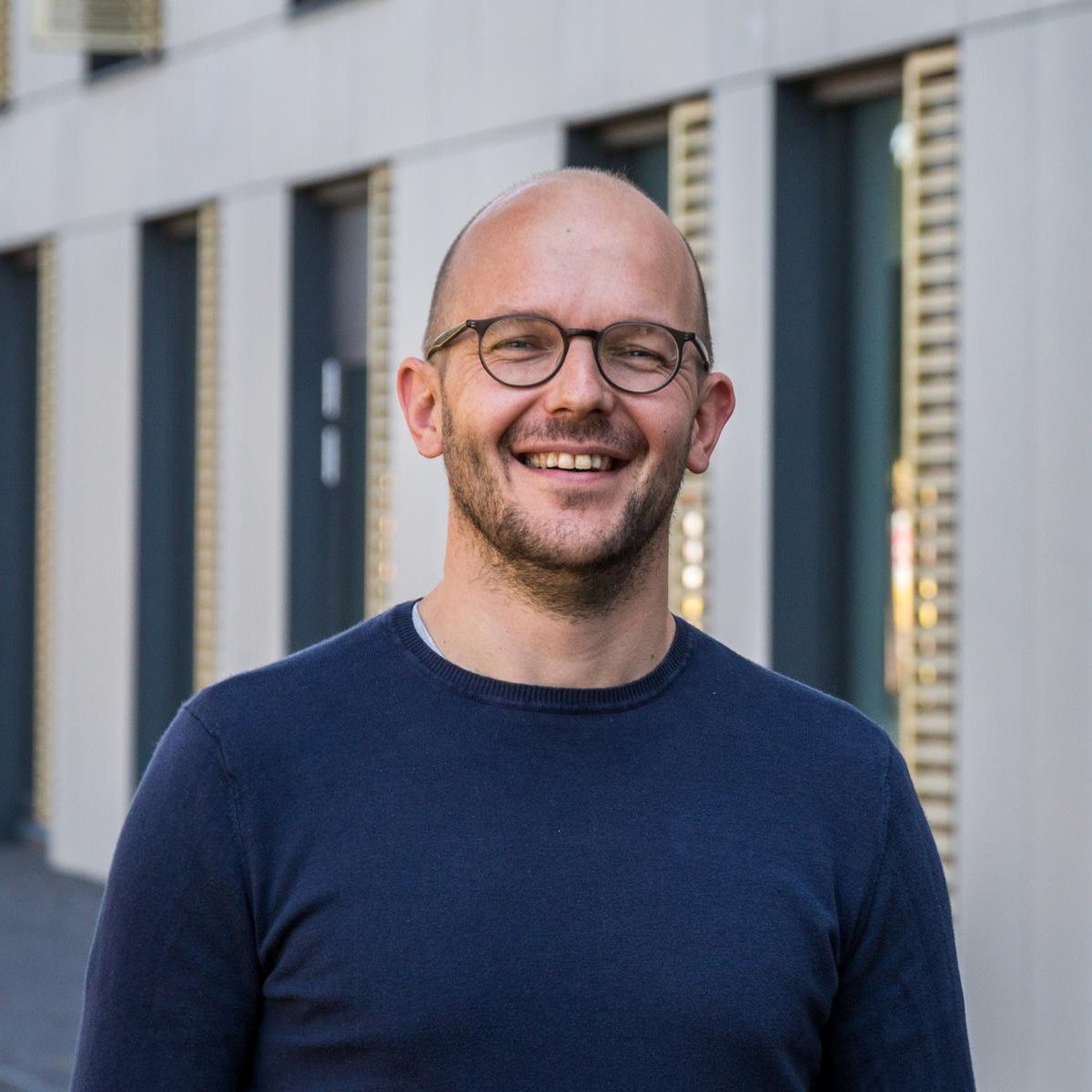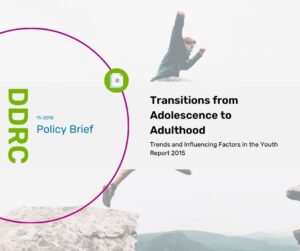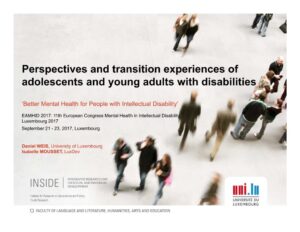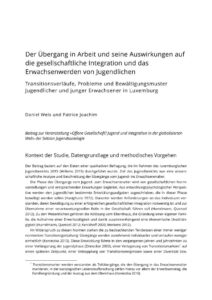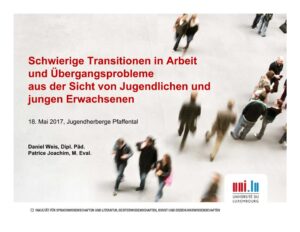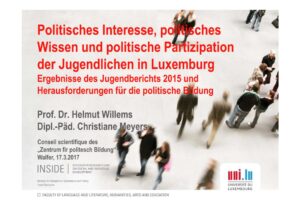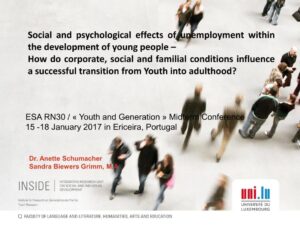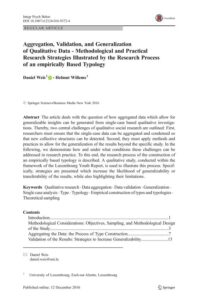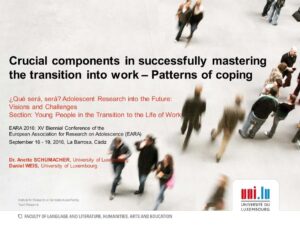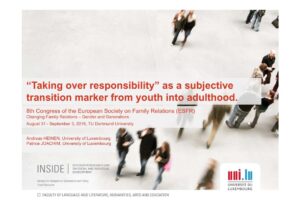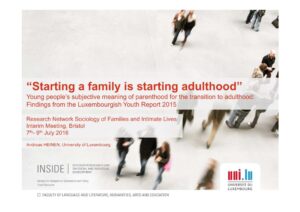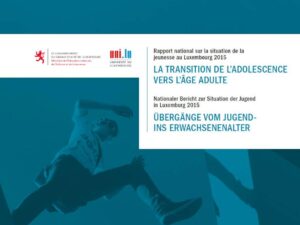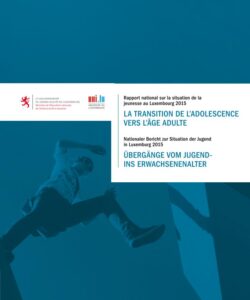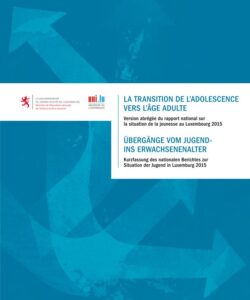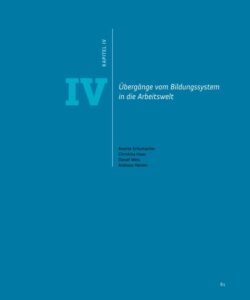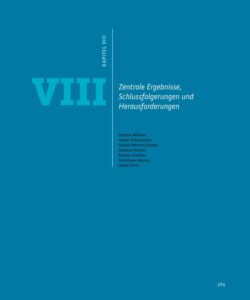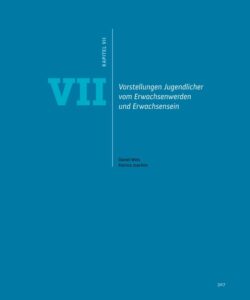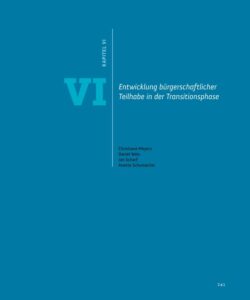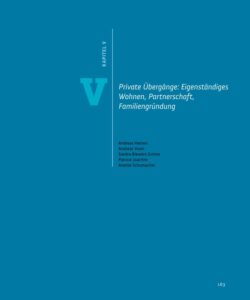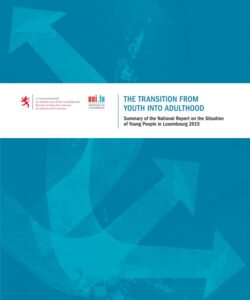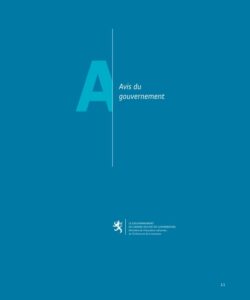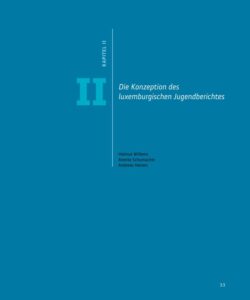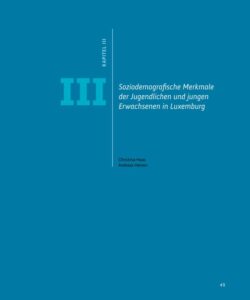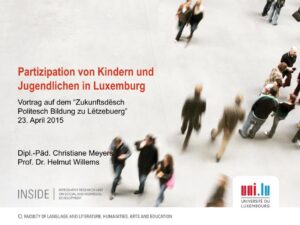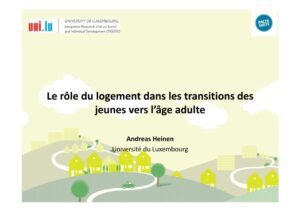Andreas Heinen is a sociologist and Research (and Development) Specialist at the Centre for Childhood and Youth Research (CCY) at the University of Luxembourg.
2015 Youth Report
National Report on the Situation of Youth in Luxembourg: Transitions from Youth to Adulthood
Growing up – but how? The Luxembourgish Youth Report provides scientific findings on the life situation of young people between adolescence and adulthood. The report identifies problems and possible solutions as a basis of information for politics, professional practice and science.
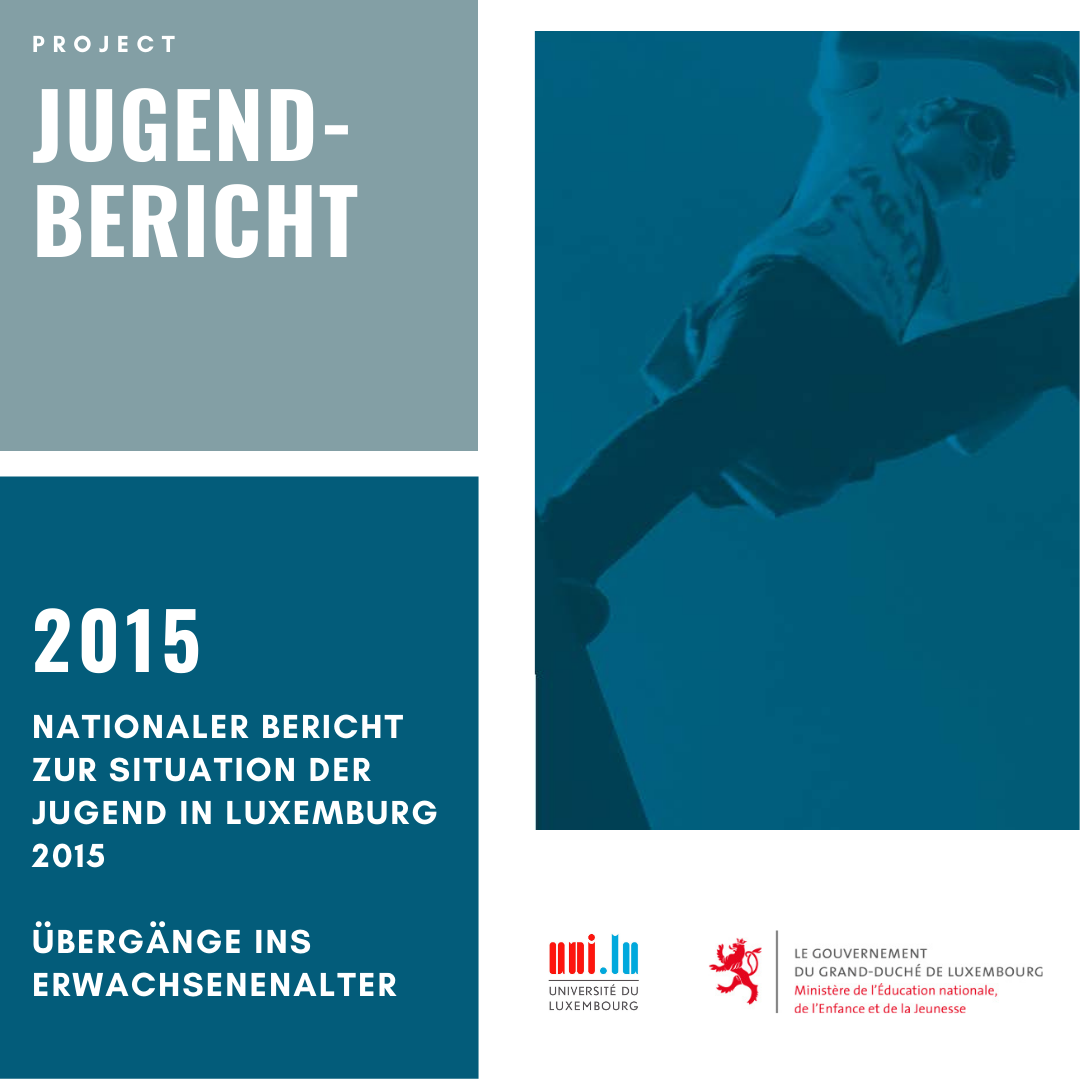
Jump to content
What is the 2015 Youth Report about?
The 2015 Youth Report is dedicated to the transitions from adolescence to adulthood. These transitions were divided into three areas: The transition from the education system to the labor market, private transitions, e.g., moving out of the parental home, developing partnerships, starting a family, and assuming a role as an active, socially and politically engaged citizen.
The 2015 Youth Report analyzes these different transitions, describes their trajectories, and identifies factors that have a positive or negative influence on the success of the transition. In addition, the report shows which support measures the state uses to respond to existing problems, what experiences participants have had with these measures, and how they evaluate the offers. Adolescents and young adults between the ages of 15 and 34 are the target group of the study.
What is the approach of the 2015 Youth Report?
The 2015 Youth Report follows a multimethod approach:
25 Expert interviews
25 interviews with experts from institutions and organizations in politics and practice supported both the conceptualization of the report’s content and the formulation of relevant questions. In addition, they provided an important reference for the selection of topics and the identification of specific problems faced by young people.
1 Secondary data analysis
Based on national and international studies, a secondary data analysis was conducted in order to empirically describe the transition phase of adolescents and young adults in Luxembourg. An attempt was made to present changes and developments as well as to identify Luxembourg-specific peculiarities and to describe comparisons according to specific characteristics such as age, gender or social origin.
77 Interviews with young people
A total of 77 guided interviews were conducted with adolescents and young adults between the ages of 15 and 35. These enabled the analysis of subjective views, perceptions and interpretations as well as individual ways of shaping and coping with transitions. The interviews were used to trace different transitions and thus depict the biographies of young people. An additional qualitative survey of 51 interviews was conducted with adolescents and young adults with disabilities to identify their specific perceptions, problems, and ways of coping.
1716 survey respondents
Adolescents’ experiences and evaluations of government-funded supports were the subject of a quantitative survey. A total of 1716 youth and young adults between the ages of 15 and 35 who had been in an intervention in 2013 or 2014 were surveyed.
9 Focus group discussions
To validate, revise and supplement the content of the report, nine focus group discussions were held in which a total of 47 experts from practice, administration, politics and science took part.
Who contributed to the 2015 Youth Report?
For the 2015 Youth Report, teams of youth researchers from a wide range of disciplines developed a differentiated research design with great care. They sifted through, collected, analyzed, and interpreted comprehensive data sets, and discussed and wrote up results.
The 2015 Youth Report was written by Dr. Sandra Biewers, Christina Haas, Andreas Heinen, Patrice Joachim, Christiane Meyers, Jan Scharf, Dr. Anette Schumacher, Andreas Vuori, Daniel Weis and Prof. Dr. phil. habil. Helmut Willems. They were supported by Simone Charles. Cooperation partners were the University of Luxembourg and the Ministère de l’Éducation nationale, de l’Enfance et de la Jeunesse in Luxembourg (MENJE).
How and why is a youth report created?
The preparation of the Youth Report is derived from Article 15 (1) of the Youth Law of July 4, 2008: It states that every five years the relevant minister shall address a National Report on the situation of youth in Luxembourg to the Chamber of Deputies.
To ensure that the youth reports are based on scientific findings, the Ministry of Childhood and Youth (MENJE) commissions researchers at the University of Luxembourg to prepare them. After several years of research, the researchers hand over the report to the ministry. In this way, the Youth Report identifies problems and suggests new approaches for action. The Youth Report is thus a basis for information and discussion for politics, professional practice and science. It offers a systematic preparation of the available knowledge about the life situation of young people in Luxembourg.


